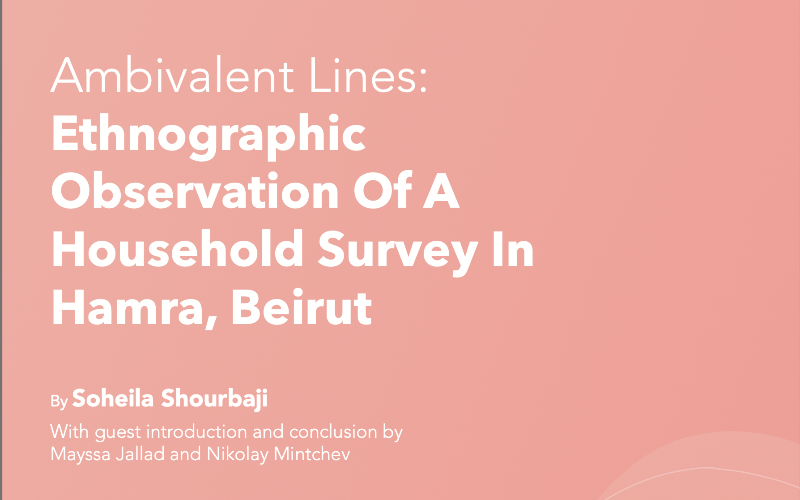Ambivalent Lines: Ethnographic Observation Of A Household Survey In Hamra, Beirut

8 February 2022
Shourbaji, S; (2020)
What happens when researchers carrying tablets knock on people’s doors and ask to conduct a survey about wellbeing? How are they received and greeted? What are the dynamics of interaction between the researchers and their interlocutors? Since our researchers are citizen scientists who “know” the neighbourhood well, what do they end up learning from fieldwork? What are the relationships between different researchers on the same team? Analyses and considerations of survey data tend to forget and disregard the fact that the data collection process involves human interactions in which all participants express attitudes, emotions, and ideas that are not captured in the answers to the survey questions. Yet, despite being treated as irrelevant contingencies that take place on the side, such interactions can be rich in insights about the very themes that the survey is designed to understand. This paper presents five ethnographic observations from the RELIEF Centre’s 2019 household survey on prosperity in the Hamra neighbourhood of Beirut. The ethnographer – Soheila Shourbaji – worked closely with the team of citizen social scientists who went from door to door and from building to building to carry out the survey. She actively observed the different elements that make up an interview, including the actions and reactions of the interviewers, respondents, and herself as a participant in the process.
 Close
Close

